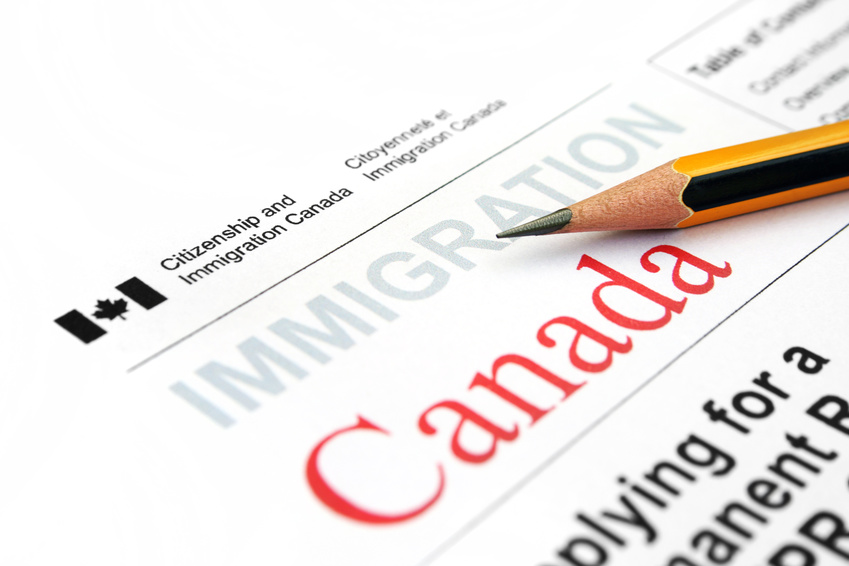The Comprehensive Ranking System (CRS) is a points-based system created by the Canadian government to assess and rank candidates who want to immigrate to Canada through the Express Entry program. The CRS assigns scores to candidates based on several factors, which helps the government select the most qualified applicants for permanent residence.
What is Express Entry?
Express Entry is an online system that manages applications for three main immigration programs:
- Federal Skilled Worker (FSW): For skilled workers with foreign work experience.
- Federal Skilled Trades (FST): For skilled tradespeople.
- Canadian Experience Class (CEC): For individuals with Canadian work experience.
Every few weeks, IRCC (Immigration, Refugees, and Citizenship Canada) conducts draws from the pool of candidates who have submitted their profiles. Those with the highest scores are invited to apply for permanent residence in Canada.
Also read Canada Express Entry: Types, Costs, and Step-by-Step Application Guide
Understanding the Canada CRS Tool
To be eligible to create an Express Entry profile, you must score at least 67 points out of 100 based on various factors. The CRS evaluates your profile using six main categories:
- Age (Maximum 12 Points)
- Points are awarded based on your age at the time your application is received. Younger candidates typically score higher, as they are seen as having more years to contribute to the workforce.
- Education (Maximum 25 Points)
- You can earn points based on your highest level of education. If you completed your education outside of Canada, you will need an Educational Credential Assessment (ECA) to prove that your degree is equivalent to a Canadian degree. This assessment shows whether your education meets Canadian standards.
- Experience (Maximum 15 Points)
- Points for work experience are awarded based on the number of years you have worked full-time in a skilled job. To qualify, you must have worked at least 30 hours per week, and part-time work can also count toward your experience. The main applicant can earn up to 10 points, while their dependents (like a spouse) can earn an additional 5 points.
- Language Skills (Maximum 28 Points)
- Language proficiency is crucial for your application. You can earn points for your ability in English and/or French by taking approved language tests (like IELTS or CELPIP). The better your scores in reading, writing, listening, and speaking, the more points you earn. For example, a high score in these tests can significantly boost your CRS score.
- Arranged Employment in Canada (Maximum 10 Points)
- If you have a valid job offer from a Canadian employer that lasts at least one year, you can earn additional points. This job offer must be supported by a Labour Market Impact Assessment (LMIA), which shows that the employer could not find a Canadian citizen or permanent resident to fill the position.
- Adaptability (Maximum 25 Points)
- Points are awarded based on your connections to Canada. For example, if you have previously studied or worked in Canada or have family members living there, you can earn points. If your spouse or common-law partner is also applying with you, their qualifications can add to your score.
Also read Job Opportunities in Germany with Visa Sponsorship 2024
How the CRS Score Works?
The minimum CRS score cut-off changes with each draw, and it depends on various factors, including the number of applicants and the government’s immigration goals. Candidates with higher scores are more likely to receive an Invitation to Apply (ITA) for permanent residence.
Ways to Improve Your CRS Score
If you want to increase your CRS score, there are several strategies you can use:
- Boost Your Language Scores
- Achieving a high score in language tests can significantly increase your CRS points. For instance, if you achieve a Canadian Language Benchmark (CLB) of 9, you could earn up to 136 points.
- Provincial Nominee Program (PNP)
- If a Canadian province nominates you, you can receive an additional 600 points on your CRS score. Each province has its own criteria and specific labor market needs.
- Get a Work Offer (LMIA Approved)
- A job offer from a recognized employer can add up to 200 points to your score, making a significant difference in your chances of being invited to apply.
- Education in Canada
- Completing a recognized degree or diploma in Canada can earn you up to 30 extra points. Studying in Canada also demonstrates your ability to adapt to Canadian life.
- Including Dependents in Your Application
- If you apply with your spouse or common-law partner, their qualifications (like language skills and education) can add points to your total. For example, language proficiency can earn an extra 20 points, and education and work experience can each add up to 10 points.
- Gaining Canadian Work Experience
- If you continue to work in Canada after getting your ITA, you can earn additional points. Having Canadian work experience can significantly boost your CRS score.
Also read Germany Visa Requirements and Application Guidelines
Points Calculation Breakdown
To apply for a Canada PR visa, you need to achieve a minimum of 67 points across several categories:
- Age: Maximum of 12 points.
- Education: Maximum of 25 points.
- Language Proficiency: Maximum of 28 points.
- Work Experience: Maximum of 15 points.
- Adaptability: Maximum of 10 points.
- Arranged Employment: Additional 10 points (optional).
Candidates are awarded points based on various factors including age, education, language proficiency, Canadian work experience, and skills transferability. Understanding how points are allocated helps candidates maximize their scores under the Comprehensive Ranking System (CRS) for Express Entry.

